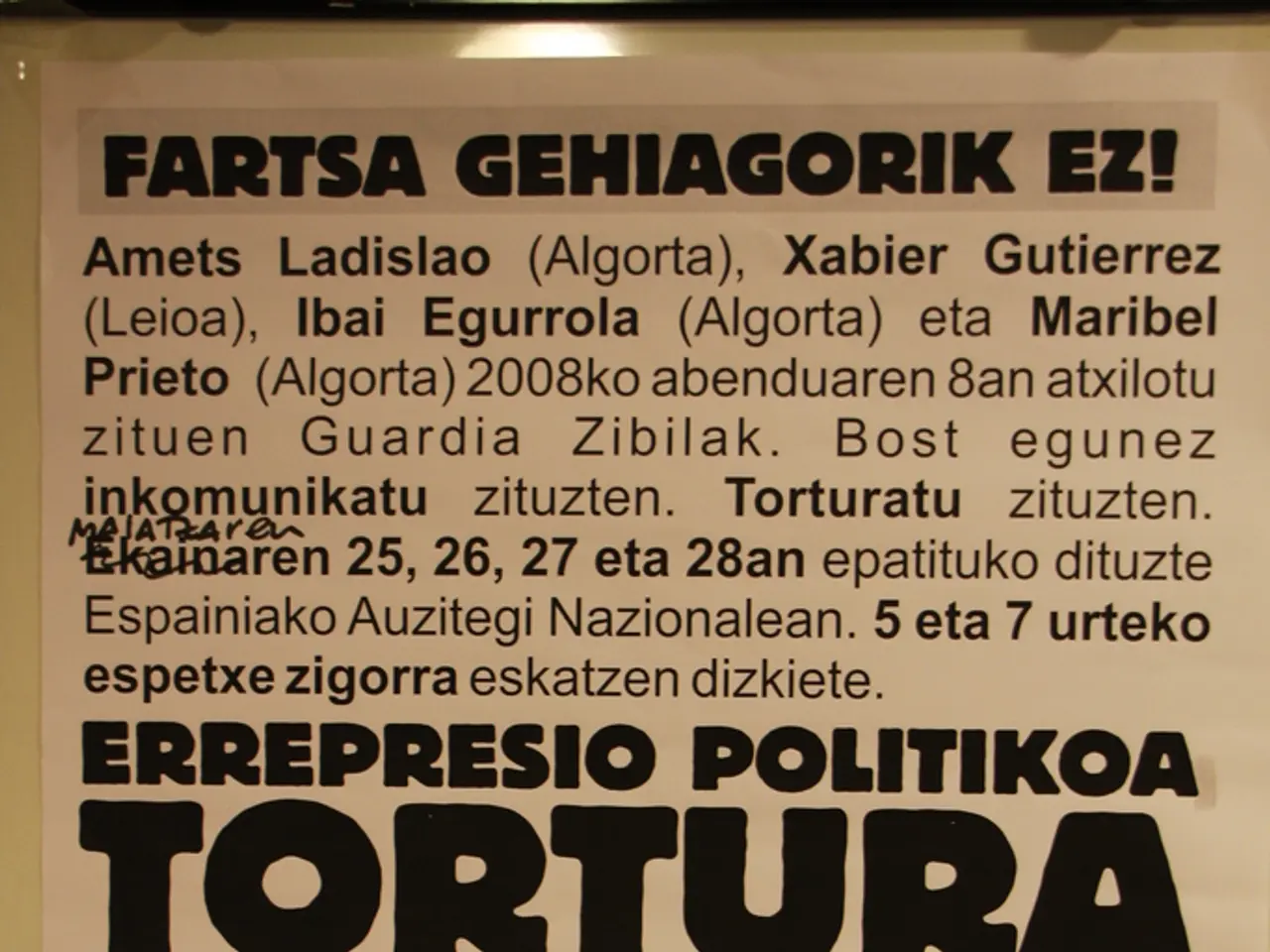Evangelical Recognized as Victim of Spanish Dictatorship for the First Time
In a significant milestone, Spain's official tribute to the victims of the dictatorship and the war has acknowledged the repression of a person for her evangelical faith. This groundbreaking recognition was bestowed upon Carmen Hombre Ponzoa, a Protestant teacher and trade unionist from Jerez de la Frontera.
Carmen Hombre Ponzoa: A Brief Overview
Born on 30 December 1903, Carmen Hombre Ponzoa was a teacher who taught in several schools in the Jerez area. Her husband, Juan Máximo Salazar, was also a teacher and was arrested along with her. During the Francoist regime, they faced severe repression, including the seizure of their property, and Carmen was even shot in prison while eight months pregnant. Their one-year-old son survived and was secretly handed over to her sister.
The Historical Context
Under Francisco Franco’s dictatorship, the Catholic Church held a privileged position, while other religious minorities, including Protestants (Evangelicals), faced discrimination, repression, and sometimes persecution. Evangelical Christians were often viewed with suspicion as non-conformists and potential subversives. Many suffered harassment, denial of civil rights, and suppression of their religious activities.
The Significance of Carmen Hombre Ponzoa's Case
Carmen Hombre Ponzoa's case marks the first time an Evangelical victim has been formally acknowledged by official Spanish institutions. This recognition breaks a historical silence and opens up the narrative to include diverse religious minorities’ experiences under Francoism.
The Impact of the Recognition
- Broadening the Historical Narrative
- The recognition challenges the dominant memory that framed victims mainly as secular leftists or Catholic dissidents.
- It includes Evangelical communities who also suffered repression.
- Encouraging Further Research and Documentation
- The case sets a precedent for documenting other overlooked victims of religious persecution.
- It encourages historians and activists to uncover a fuller picture of Francoist repression.
- Promoting Religious Pluralism and Reconciliation
- Acknowledging Evangelical victims contributes to Spain’s ongoing efforts at historical justice and reconciliation.
- It promotes tolerance by recognizing the diversity of suffering under authoritarian regimes.
- Influence on Public Policy and Memory Laws
- The case may influence revisions to Spain’s Historical Memory Law or related policies to ensure broader inclusion of minority victims.
- It underlines the need for memorials and reparations to recognize religious persecution.
The official recognition of Carmen Hombre Ponzoa as an Evangelical victim symbolizes a crucial step toward inclusive remembrance of the Francoist dictatorship’s victims. It broadens the scope of historical memory to acknowledge the persecution faced by religious minorities, promotes reconciliation, and enriches Spain’s collective understanding of its past.
For the last six years, the Evangelical Council of Andalusia has given a prize in Carmen Hombre Ponzoa's honor to highlight the educational work of entities. The event, originally scheduled for 31 October, was postponed due to floods in Valencia and took place on 10 December in Madrid. The event was attended by high-ranking officials, including the President of the government, Pedro Sánchez, and other ministers and authorities.
Apart from Carmen Hombre Ponzoa, Atilano Coco, a friend of the famous author Miguel de Unamuno, was another evangelical who experienced repression under Franco's regime. Fernando Martínez Lopez, the Secretary of State for democratic memory, participated in a training course on memory and Protestantism to further understand the experiences of Evangelicals during this period.
This recognition not only honours the memory of Carmen Hombre Ponzoa but also serves as a reminder of the need for continued efforts to ensure historical justice and reconciliation for all victims of the Francoist dictatorship, regardless of their religious beliefs.
- The recognition of Carmen Hombre Ponzoa as an Evangelical victim during Spain's Francoist dictatorship can potentially spark debates in the realm of education and self-development, prompting discussions on the role of religion in politics and its impact on individuals' lives during such periods.
- This acknowledgment of Carmen Hombre Ponzoa and other Evangelical victims, with the ongoing research and documentation, can significantly alter the general news narrative about the Francoist era, providing a more comprehensive perspective on the religious persecution that occurred under the dictatorship.




